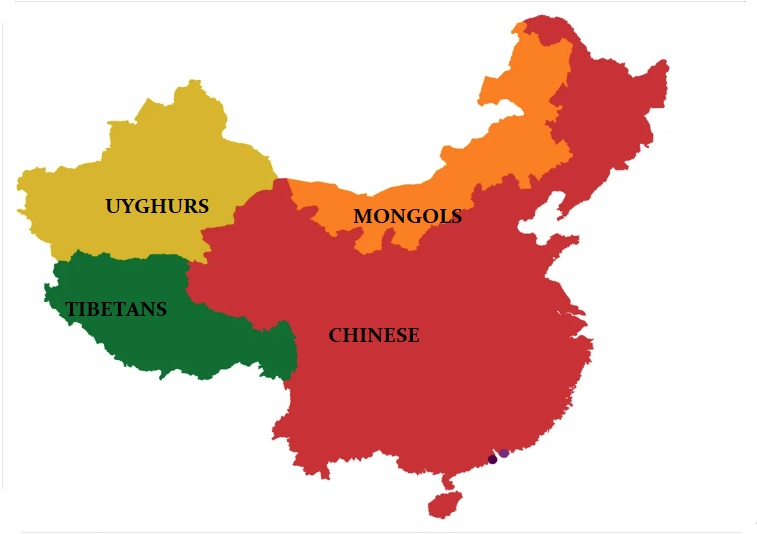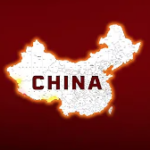China is a multinational country. Its ethnic minorities are not numerous at all, especially in comparison with the enormous number of the people who are collectively known as Chinese. Still, some of the minorities occupy very large territories, and these are Mongols, Uyghurs and Tibetans. Their respective territories make a crescent from the north (Mongols) to the west (Uyghurs), and the south (Tibetans). Compare with a similar crescent round the Western part of Russia: the Baltic States, Belarus, and Ukraine.
Why can’t China let go of the three alien nations and allow them to have their independent countries rather than being autonomous parts of the Chinese state? The answer is simple and anyone who has followed the political events in the last thirty years knows it. It is not without a reason that we compared the political crescent adjacent to China with the similar one adjacent to Russia. If today China withdrew from the three regions and recognized their sovereignty, no later than tomorrow the United States would join the three independent countries to a kind of NATO or AUKUS. and would take control over them and use them against China. That’s precisely what has happened with the Baltic States and Ukraine; that’s precisely what could have happened with Belarus and may still happen.
That is the reason why big states are compelled to enlarge their territories and to institute dependent states around them. That’s how big states ensure their safety and peace on their borders. It was not without a reason that the USSR (effectively Russia) was made up of several republics and had a whole political bloc of dependent countries in Central Europe. Michail Gorbachev, the USSR’s last head of state, naively thought that neither these dependent countries nor the whole of the Soviet Union were necessary for the safety of Russia, for peace in all Soviet republics and the dependent countries. History – or rather the United States – has proved him dead wrong.
If yesterday China had followed in the footsteps of the USSR, it would have war either close to its borders or inside the country. Conversely, if yesterday the Soviet Union had not let go of all the dependent states and had not disintegrated, today it might be following China’s path of development, implementing capitalism under the guidance of its communist party.
The leaders of the USSR may have thought that Central European states would feel at least a modicum of gratefulness for being peacefully released from the Soviet grip. What is the reality? The reality is that almost on the following day former Soviet dependencies joined a military alliance hostile to Russia, and are now – with the exception of Hungary – rabidly anti-Russian. The leaders of China need not harbor the same naive expectations. They can take it for granted that Mongols, Uyghurs, and Tibetans, emancipated by Beijing, would immediately turn into China’s rabid adversaries. Such are tough rules of history: if you do not expand, you begin to shrink; if you do not elbow your way through life, you soon become downtrodden.





